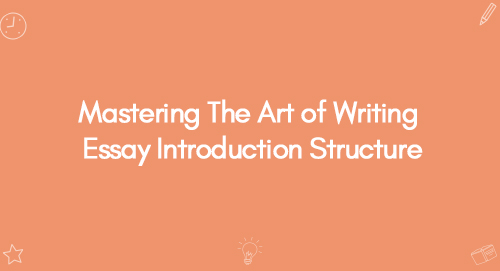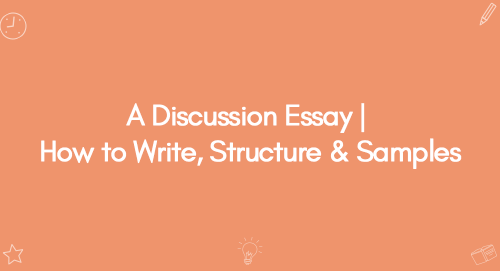History Essay Examples in 2024 | Common Mistakes to Avoid and Pro Tips
History Essay Examples in 2024 | Common Mistakes to Avoid and Pro Tips

Evaluation Essay Example | Types and Great Tips to Follow
February 12, 2024
Mastering APA Essay Format | A Comprehensive Guide
February 19, 2024A history essay is a structured argument that explores and analyzes historical events, developments, themes, and historical evidence. It typically requires the writer to present an analysis based on research and evidence.
Learn How to Write a History Essay
This comprehensive guide on history essay writing provides examples of pro tips for 2024, offering practical insights, illustrative examples, and actionable tips to navigate the intricacies of history essay writing.
Example: 1 Climate Change Essay Examples
Example: 2 Academic Essay Example
History Essay Examples
Two history essay examples are provided below for review.
A History Essay Example
This essay explores the multifaceted causes that led to the outbreak of the Civil War, examining the political, economic, and social factors that fueled the conflict. This example demonstrates how a history essay can be effectively written.
Title: The Causes of the American Civil War
Introduction
The United States, born out of the struggle for independence, faced a new challenge in the mid-19th century as tensions between the Northern and Southern states escalated. The quest to uncover the root causes of the American Civil War requires an exploration of the complex interplay of political, economic, and social forces during this tumultuous period. While slavery is often cited as a central issue, a closer examination reveals that the Civil War was also a result of divergent economic systems, conflicting views on states' rights, and political compromises that proved unsustainable.
Body Paragraphs
- Economic Disparities
The economic disparity between the agrarian Southern states, dependent on slave labour for their cotton-based economy, and the industrialized Northern states fueled sectional tensions. The South's reliance on slave labour clashed with the North's growing commitment to industrialization, creating economic disparities that set the stage for conflict. - States' Rights vs. Federal Authority
The debate over states' rights versus federal authority intensified as Southern states sought to protect their autonomy. The issue of whether states had the right to nullify federal laws or secede from the Union became a flashpoint, highlighting the fundamental differences in political philosophy between the North and the South. - Expansion of Slavery
The westward expansion of the United States reignited debates over the extension of slavery into new territories. The Missouri Compromise and the Wilmot Proviso attempted to address this issue, but each compromise only served to delay the inevitable clash between pro-slavery and anti-slavery forces.
Conclusion
The American Civil War was not a singularly caused event but rather a culmination of deep-rooted tensions stemming from economic, political, and social differences. While slavery played a pivotal role, it was intertwined with broader issues such as economic disparities, debates over states' rights, and the question of slavery's expansion. Understanding these multifaceted causes is crucial for comprehending the complexities that led to the nation's deadliest conflict.

Another History Essay Example
This example provides an overview of the impact of the Industrial Revolution, covering key aspects such as labour transformations, urbanization, and social changes. It illustrates how to structure an essay with an introduction, thesis statement, and body paragraphs to present a coherent argument.
Title: The Impact of the Industrial Revolution on Society in the 18th Century
The Industrial Revolution, a period of profound economic, technological, and social change that began in the late 18th century, reshaped societies across the globe. This essay examines the transformative effects of the Industrial Revolution on labour, urbanization, and social structures.
Thesis Statement
The Industrial Revolution brought about technological advancements and economic growth, it also brought forth significant challenges, including harsh working conditions, rapid urbanization, and shifts in societal dynamics
Body Paragraphs
- Labour Transformations
The mechanization of industries resulted in a radical shift in labour practices. Traditional artisanal craftsmanship gave way to factory-based production, leading to the rise of the working class. While technological innovations increased productivity, they also subjected workers to gruelling conditions, long hours, and meagre wages.
- Urbanization and Social Change
The surge in industrial activity spurred rapid urbanization as people flocked to cities for employment. Urban centres grew exponentially, creating new challenges such as overcrowded slums, inadequate sanitation, and heightened social stratification. The traditional agrarian society was replaced by an industrial and urban one, fundamentally altering the fabric of communities.
- Social Hierarchies and Class Struggles
The Industrial Revolution gave birth to a new social order characterized by distinct class divisions. The industrial bourgeoisie emerged as a powerful class, while the working class faced economic hardships and limited rights. This led to the rise of social movements advocating for workers' rights, laying the groundwork for future labour reforms.
Conclusion
The Industrial Revolution left an indelible mark on human history, profoundly shaping the trajectory of societies. While it brought about technological marvels and economic growth, it also presented formidable challenges, particularly in labour exploitation, urban living conditions, and social inequalities. Understanding the multifaceted impact of the Industrial Revolution is essential for grasping the complexities of the modern world that emerged in its wake.
Pro Tips 2024 For Writing History Essay Examples
By incorporating these pro tips into your history essay writing process, you'll enhance the quality and impact of your work.
Do Thorough Research
The news on historical studies and textual research development remains fast-changing. Your essay should be based on credible sources such as peer-reviewed journals and primary documents to guarantee that the historical knowledge contained in it is recent.
Clear Thesis Statement
Formulate a brief and persuasive thesis statement that articulates your central idea clearly. Your thesis statement should direct the reader through your essay's main theme or interpretation.
Concise and Clear Language
Eliminate unwarranted vague words that do not contribute to clarifying your message. Make your ideas simple for all readers, including those who need to understand the historical era.
Revise and Edit
Spend the time to revise and edit your essay. Review for clarity, cohesiveness and grammar. Ensure that your arguments are backed by ample evidence, and note any errors in writing.
Stay Relevant
Where appropriate, connect historical events or themes to current concerns. This connection gives significance to your essay and shows a knowledge of the continuing effects of historical events.
Free Premier Essay Writing Topics
Essay Writing is an essential part of academics which presents the ideas, arguments, opinions, or positions of the writer regarding the topic. The writer supports his claims using facts, evidence, or survey studies.
- Clear presentation or understanding of the type of essay
- An appealing introduction with an unambiguous thesis statement
- A well-defined structure of body paragraphs supporting the thesis
A prospective conclusion with an optimistic tone
Common Mistakes to Avoid in History Essay Writing
Avoiding common mistakes is crucial for producing a strong history essay. Here are some pitfalls to avoid:
- Inaccurate Information
Inaccurate historical information in history essay. To ensure your information is right, review every fact and date twice. Use reliable sources, and be sure to check your information.
- Lack of Thesis statement Clarity
Constructing a general or ambiguous thesis statement. In the introduction, provide a clear statement of your thesis. It must argue a particular stance that your essay should illustrate.
- Over-Reliance on Secondary Sources
Do not rely too much on secondary sources without primary materials. Include primary sources whenever possible. They provide personal experience and make your essay more credible.
- Last-Minute Rush
The Biggest sin is rushing to begin or end the essay. Plan your time efficiently, and allocate some for research and writing. An early start enables you to create a more careful and fully developed essay.
Conclusion
History essays serve as a bridge between the past and the present, offering a nuanced perspective on the events that have shaped our world. You can write good history essays by embracing these examples of pro tips and steering clear of common pitfalls



















